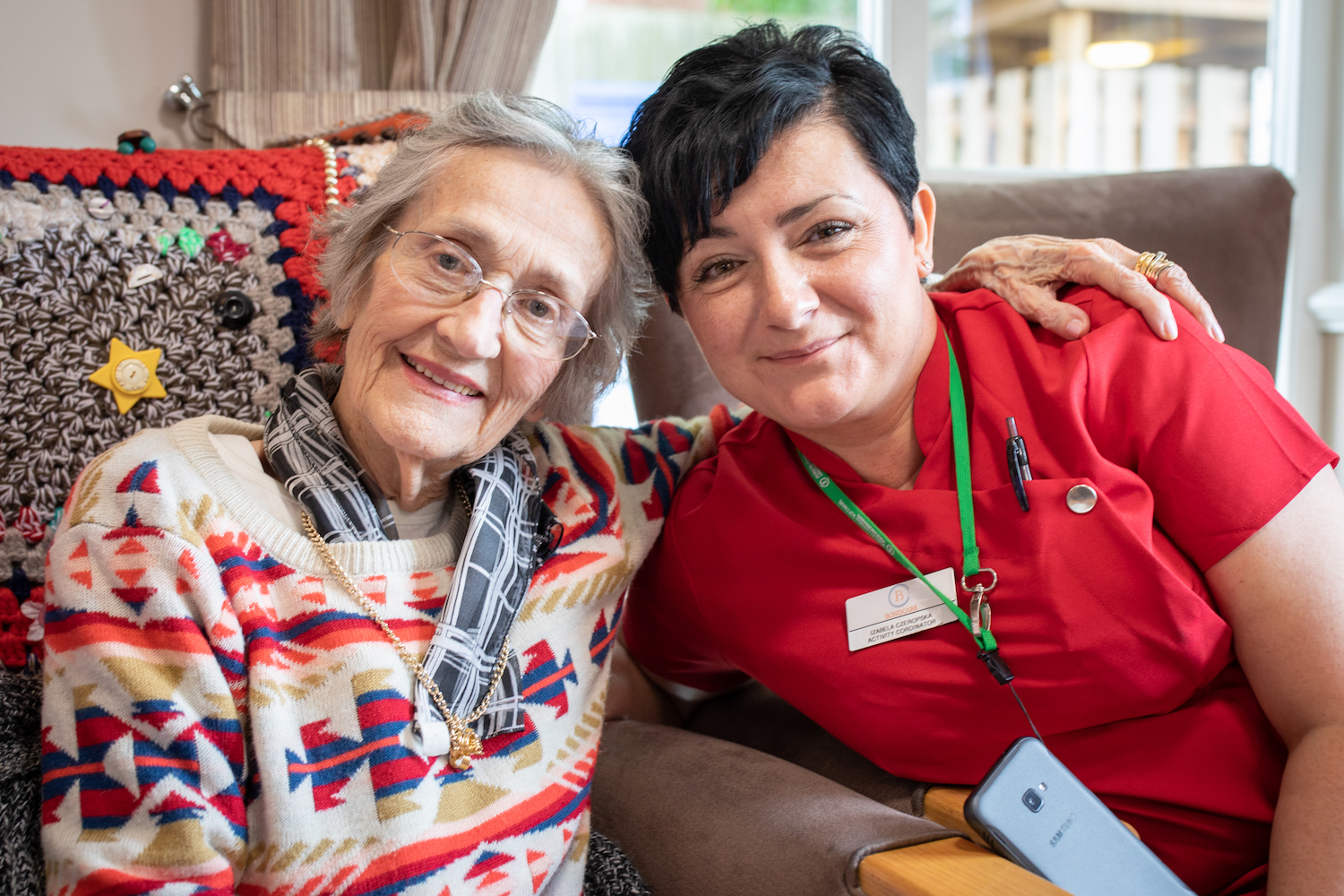Residential Care Home vs Nursing Home: What’s the Difference?
When it comes to choosing a care home for yourself or a loved one, it’s important you know the difference between a residential care home and a nursing home. Both a residential care home and a nursing care home provide accommodation, staff 24 hours a day and assist with all aspects of personal care. Both residential and nursing places provide a home away from home, as the staff pay extra attention to detail to make sure all the residents feel comfortable and have everything they need. In this article, we’ll analyse the differences between both types of care homes, to help you decide which one would be more suited for yourself or a loved one.
What is a residential care home?

Care homes are staffed at all hours of the day to ensure the safety of the residents. The majority of staff working there will be qualified care assistants with NVQs (National Vocational Qualifications) or RQFs (Regulated Qualifications Framework), in Level 2 or 3. Managers of residential care homes are required to have a Registered Manager Award but will not necessarily have nursing qualifications, as this isn’t necessary. If any residents need medicine or treatment administered by specialist nurses, they will be called in at an appropriate time.
The staff are able to assist and encourage residents with dressing, washing, eating, drinking and joining in on social activities. Records are kept for each resident to ensure they keep on track with their individualised plan of care. Medications prescribed by their Gp will be offered at the times stated on the prescription. Whilst the staff are on hand for support, they also respect the residents’ dignity, privacy and encourage their independence.
What is a nursing home?

A nursing home is for people who are requiring nursing care combined with residential/social care. A team of registered nurses will be available 24 hours a day. This can include a variety of patients, for example;
- People recovering from surgery
- People with serious short or long term illnesses
- People recovering from serious injuries
- People in need of extra nursing care before returning home (Rehabilitation/Intermediate Care)
- People with complex nursing needs
- People needing palliative care
Although nursing homes offer clinical services, they are much closer to a home than a hospital, as they offer the atmosphere of a home, so you don’t feel out of place. Some nursing homes have dual-registration, so can provide care with or without nursing, allowing residents to stay at the same residence whilst receiving different levels of care over time.
Nursing homes have specialists beds to help with day-to-day tasks and provide comfort to the residents. There will be nursing staff available 24 hours a day who will be trained to recognise symptoms of illnesses and use specialist equipment to move and handle the residents safely. There are nursing homes available that provide professional care and support for those specifically with dementia, as their needs may not be met in a standard care home.
Before a person enters a nursing home, a comprehensive person centred pre-admission assessment will be completed to ensure the staff know a little about the person before they are admitted and that any equipment they may require, will be in place on admission. These kinds of nursing homes even have decor orientated towards providing a calming experience for dementia patients – making it a perfect choice for someone dealing with the disease.
When considering a nursing home, we recommend choosing a nursing home that suits the needs of yourself or your loved one in the current moment, but it’s also important to consider the future there too.
Which is better for me/my relative?

Choosing a care home for yourself or a relative will be an emotional decision, but it is important you choose wisely in order to reach the needs of the potential resident. If you are unsure which one would be better suited, we recommend reaching out to both for their professional opinion.
A nursing home provides specialist care for a variety of medical issues, these can include but are not limited to:
- All types of Dementia
- Huntington’s disease
- Parkinson’s disease
- Rehabilitation/Intermediate Care
- Young people with physical disabilities.
- Palliative Care
- Behaviours that are challenging
- Trauma Care
Whichever care home you choose, you’ll receive a personalised care plan and regular updates to ensure the resident is on track.
Some other forms of care homes to consider
If you’re unsure, you’ll be able to apply for more specific care, such as:
- Independent living – this is orientated towards individuals who don’t need care but want to live with the luxury of medical care whenever they may need it. It also helps battle loneliness in old age.
- Elderly mentally infirm – elderly people who suffer from mental illnesses, disorders or impairments can have a more specialised form of care in their old age, due to the higher level of care needed.
What is NHS Continuing Healthcare Funding?
NHS continuing healthcare is a care package for people who have been assessed and need ongoing healthcare. It is completely funded by the NHS and arranged by healthcare professionals – but getting funding can be difficult, often needing many requirements and taking many months to get organised.
Here at Bondcare, we pride ourselves on creating a friendly and comfortable environment for all our residents, whether this is yourself or a loved one. Privacy, independence and dignity are of the utmost importance for our residents, which is why we retain this for all. For more information on our care homes and services, please get in touch with a member of our team today.





